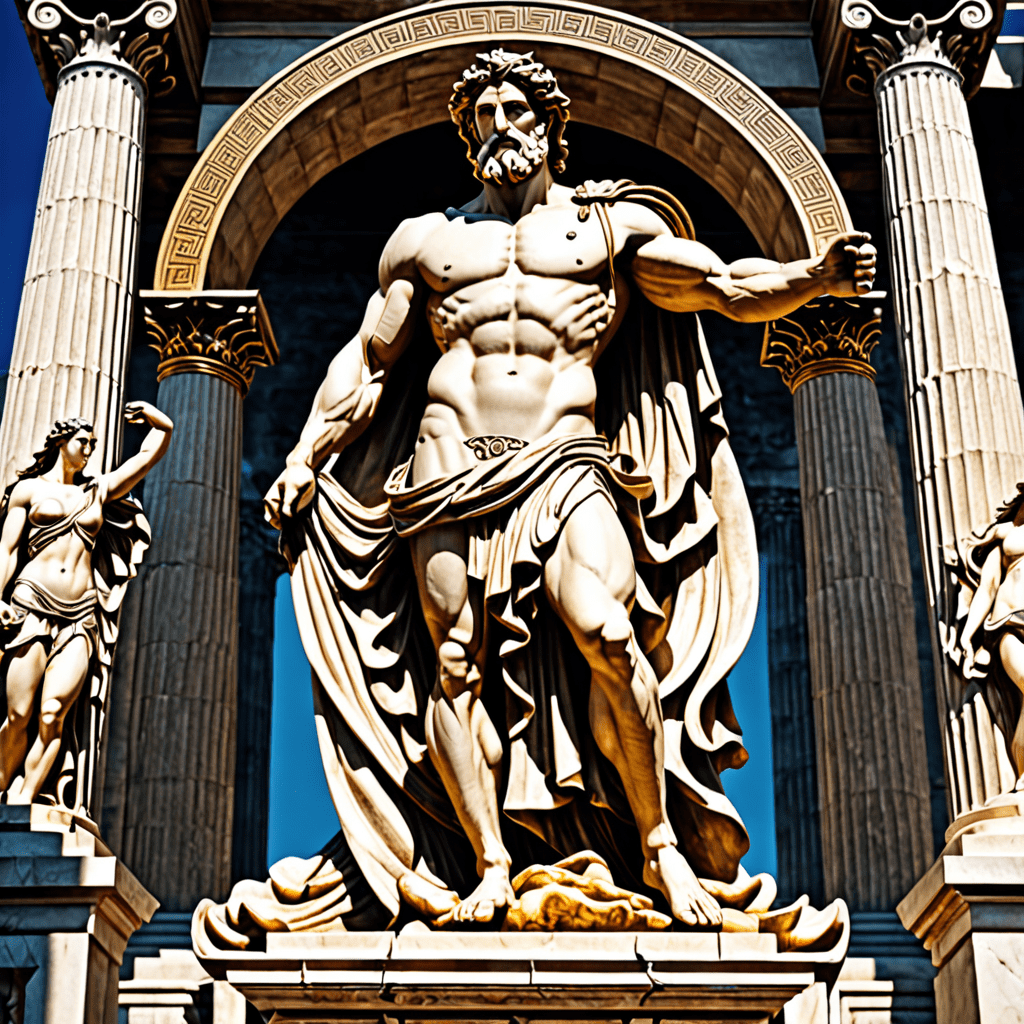The Role of Cultural Heroes in Mythology and History
I. Introduction
Cultural heroes play a pivotal role in the narratives that shape societies and their values. These figures, often larger than life, embody the ideals, struggles, and aspirations of a culture. They serve as symbols of virtue, strength, and resilience, inspiring individuals and communities alike. This article will explore the multifaceted role of cultural heroes, tracing their evolution from ancient times to modern society. We will examine their historical context, mythological foundations, psychological significance, and contemporary relevance, as well as the impact of gender and critiques of traditional hero narratives.
II. Historical Context of Cultural Heroes
The concept of the hero has evolved significantly throughout history, shaped by geographical, cultural, and social factors.
A. Evolution of hero archetypes from ancient to modern times
From ancient epic tales to contemporary narratives, hero archetypes have transformed, reflecting the values and challenges of their respective eras. Early heroes were often depicted as warriors or demigods, while modern heroes can be everyday individuals who exhibit extraordinary courage or integrity.
B. The impact of geography and culture on hero narratives
Geography and cultural context play crucial roles in defining what constitutes a hero. For example:
- Western Heroes: Often characterized by individualism and personal achievement, such as Achilles or King Arthur.
- Eastern Heroes: Frequently embody collective values and moral integrity, like Sun Wukong from the Chinese epic “Journey to the West.”
C. Examples of early cultural heroes across different civilizations
Many civilizations have produced legendary heroes, such as:
- Moses: A leader who guided his people to freedom in Jewish tradition.
- Beowulf: A warrior who fought against monsters to protect his kingdom in Anglo-Saxon literature.
- Rama: A prince and incarnation of the god Vishnu in Hindu mythology, known for his righteousness.
III. Mythological Foundations of Heroism
The essence of heroism is deeply embedded in mythology, where heroes often exemplify universal traits and face monumental challenges.
A. Common traits and characteristics of heroes in mythology
Heroes in mythology typically share several key characteristics:
- Bravery in the face of adversity
- Supernatural abilities or divine favor
- Strong moral compass and sense of justice
- Transformation through trials and tribulations
B. The role of gods, demigods, and mortals in hero stories
Many heroes in mythology are either gods or demigods, which highlights the interplay between the divine and human realms. For instance, Hercules is a demigod whose strength and heroism are often aided by the gods, while Odysseus’s cunning is matched by Athena’s guidance.
C. Case studies: Hercules, Gilgamesh, and Odysseus
Each of these heroes represents different facets of heroism:
- Hercules: Embodies strength and perseverance, known for completing the Twelve Labors.
- Gilgamesh: A blend of human and divine traits, his journey reflects the quest for immortality and friendship.
- Odysseus: Symbolizes intelligence and resourcefulness, overcoming numerous obstacles to return home.
IV. Cultural Heroes as Symbols of National Identity
Cultural heroes often serve as foundational figures in the narrative of nation-building and identity formation.
A. The role of heroes in nation-building and political movements
Throughout history, heroes have been instrumental in shaping national identities, often serving as rallying points for political movements. Their stories can unify people under shared values and aspirations.
B. Examples of national heroes and their impact on cultural pride
National heroes can inspire pride and solidarity, such as:
- George Washington: Seen as the father of the United States, symbolizing freedom and leadership.
- Nelson Mandela: A figure of resistance and reconciliation in South Africa, embodying the struggle against apartheid.
C. The duality of heroism: Celebrated vs. controversial figures
While some heroes are universally celebrated, others can be polarizing. Figures like Christopher Columbus are revered by some as explorers, while others critique their roles in colonization and oppression.
V. The Psychological Significance of Heroes
Heroes are not only cultural icons but also play a significant role in psychological development and identity formation.
A. The concept of the hero’s journey in psychology
The “hero’s journey,” a narrative framework identified by Joseph Campbell, outlines the typical stages a hero undergoes, including the call to adventure, trials, and eventual transformation. This journey resonates deeply with personal experiences of growth and resilience.
B. How heroes serve as role models and sources of inspiration
Heroes provide individuals with blueprints for overcoming challenges. By embodying virtues such as courage, integrity, and perseverance, they inspire others to emulate these traits in their lives.
C. The impact of hero stories on individual and collective identity
Hero stories help shape both personal identity and collective consciousness, fostering a sense of belonging and shared purpose within a community.
VI. Heroes in Folktales and Oral Traditions
Folktales and oral traditions are vital for the transmission of hero stories across generations.
A. The transmission of hero stories through oral narratives
Oral storytelling has been a primary method for sharing hero narratives, ensuring cultural values and history are preserved. These stories often adapt as they pass through different cultures and generations.
B. Variations and adaptations of hero tales in different cultures
Hero tales can vary widely, reflecting local beliefs and customs. For example, the story of Robin Hood is told differently across English folklore, emphasizing various themes of justice and rebellion.
C. The role of storytelling in preserving cultural values
Storytelling serves as a means of reinforcing cultural norms and values, with heroes often embodying the traits that a society holds dear.
VII. Contemporary Cultural Heroes
In modern society, the concept of heroism has expanded to include a diverse range of figures across various media.
A. Analysis of modern heroes in literature, film, and media
Contemporary heroes often reflect current societal challenges and values. Characters in literature, film, and television can serve as both escapism and mirrors of reality.
B. The influence of pop culture on the perception of heroism
Pop culture heroes, such as superheroes from comic books and movies, often represent idealized versions of heroism, exploring complex themes of morality and justice.
C. Case studies: Superheroes and their societal implications
Superheroes like Spider-Man and Wonder Woman have become cultural icons, representing resilience, diversity, and social justice, while sparking discussions about power and responsibility.
VIII. The Role of Gender in Hero Narratives
Gender plays a significant role in shaping hero narratives, influencing how heroes are portrayed and perceived.
A. The representation of female heroes in mythology and history
Female heroes, though often underrepresented, have made significant impacts throughout history. Figures like Joan of Arc and Harriet Tubman challenge traditional gender roles, showcasing strength and leadership.
B. Changing perceptions of masculinity and femininity in heroism
The portrayal of masculinity and femininity in hero narratives is evolving. Contemporary heroes often blend traits traditionally associated with both genders, challenging stereotypes.
C. Examples of powerful female heroes: Athena, Mulan, and Malala Yousafzai
Powerful female heroes like Athena, the goddess of wisdom and war; Mulan, who disguised herself as a man to fight for her family; and Malala Yous



